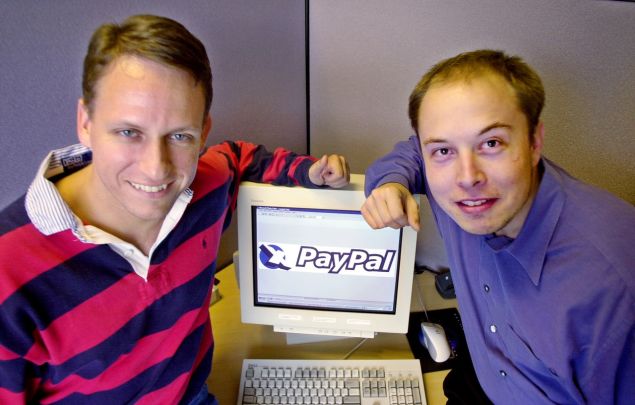Neural Decoder Bryan Johnson Is The Next Elon Musk (If He Can Hack It)
News May 13, 2025 Damon Mitchell

In 2013, Bryan Johnson sold his payments company, Braintree, to PayPal for $800-million. That left him a comfortable cushion to invest in his next venture, Kernel.
With Kernel, he intends to hack the human brain. There’s just one problem. He’s not a neuroscientist.
Johnson’s story reads a lot like Elon Musk’s, success at an early age in financial tech, new projects that exceed his education but backed by the drive and money to close the gap. If Johnson is the next Elon Musk, we can expect him to hack the brain before anybody else, but it will be a steep battle.
Braintree
Johnson’s payment company worked similar to PayPal. Aimed at small to large businesses, like AirBnB, Github, and others Braintree helped them process and split payments. In his own words, Johnson wanted to “create a company that had a soul.”
What exactly he meant is up for debate, but I have my suspicions his upbringing had something to do with it. We’ll come back to that.
He was 27 when Braintree launched, living in Chicago. The non-financial goals for Braintree, the company with a soul, were threefold.
He wanted his engineers to say it was the best payment platform in the industry, for his employees to say they it was the best company they’d worked for, and for their customers to write them love letters.
According to Johnson, they achieved those goals. Yup, they received letters of adoration for payment processing. I don’t know if that means Johnson got his wish for a company with a soul, but it certainly had personality.
Johnson, Elon Musk & Peter Thiel
The parallels and connections are undeniable. Musk and Thiel created PayPal, long before anyone was hip to online payments. When they sold the company to eBay, they both made enough cash to never work again.
The irony is that Johnson sold Braintree to PayPal, and made enough money to never work again. Like Musk, Johnson instead got to work on his next project, one in which he had no expertise.
Musk, for his part, started Tesla Motors and SpaceX, neither of which focused on areas of expertise for him either. He studied rocket science to catch up.
Johnson is in a similar vessel with neuroscience now. Because of Johnson’s Mormon upbringing, some find more connections with Peter Thiel, who grew up evangelical Christian. Like Johnson, Thiel no longer hones his faith but carries with him the tenants of that religious upbringing.
Musk is an atheist.
Kernel
If the goals for Braintree sounded audacious, the goals for Kernel are even bolder.
Johnson wants to meld technology with the human brain. He wants humans to outpace artificial intelligence, something Elon Musk has warned us about.
If machines get ahead of us, we may find ourselves in the matrix or worse, gone. Melding with technology could let us hack the infinite possibilities of the brain.
The question is, can Johnson do this without a road map?
With enough cash, time and determination, smart people can start whatever company they want. Without any training as a CEO or background in business, Mark Zuckerberg became the CEO of Facebook.
In any business, you hire people to fill in the gaps, both in your own competencies but those of your team. Kernel has a long journey ahead, with plenty of gaps in the route before they started.
At present, very few people have multi-electrode implants in their brains. Implants are messy. The body builds up scar tissue. They eventually fail and one has to remove them.
This thin number of study candidates means getting started will be tough. They need subjects to study. They need people willing to have brain surgery.
The Neural Hack
We’ve decoded the genetic code, but compared to the neural code, that’s like calling yourself a hacker because you know how to use a calculator.
We have no idea how the brain codes information. The best we’ve done so far is fake it, repurposing brain patterns we don’t understand to articulate artificial limbs.
In those scenarios, it’s not like we understood the neural code. We have no idea what the brain was “saying.” The closest we’ve come to understanding neural code goes like this…
Imagine someone pointing frantically at a glass of water while shouting at you in a foreign language. You’d give them the water and assume they were saying something about “need water” or “I’m thirsty.” You still have no idea what the words were or meant.
Johnson doesn’t care about any of that. He’s prepared to sink billions of dollars and all his time into success. He has plenty of both, but does he have the patience?
When Musk spent his last money on launching one more rocket after several failures, he had burned through most SpaceX’s finances. That final and successful launch won a bid from NASA and saved the company.
Musk isn’t hurting for cash today. If he wants to rub shoulders with the likes of Musk, Johnson has to be ready to lose it all. He’s got to hang on until there is only one more chance if that’s what it takes.
When he is successful, biohackers will go nuts. By then, we’ll live in a world with tighter restraints on hacking the body, especially the brain.
There’s no way the intelligence community will allow grinders to implant brain upgrades in piercing studios. That doesn’t mean it won’t happen, though. You’ve seen Minority Report… totally real.
Keep your ears to the ground. We’re gonna hear more about Bryan Johnson in the coming years.




